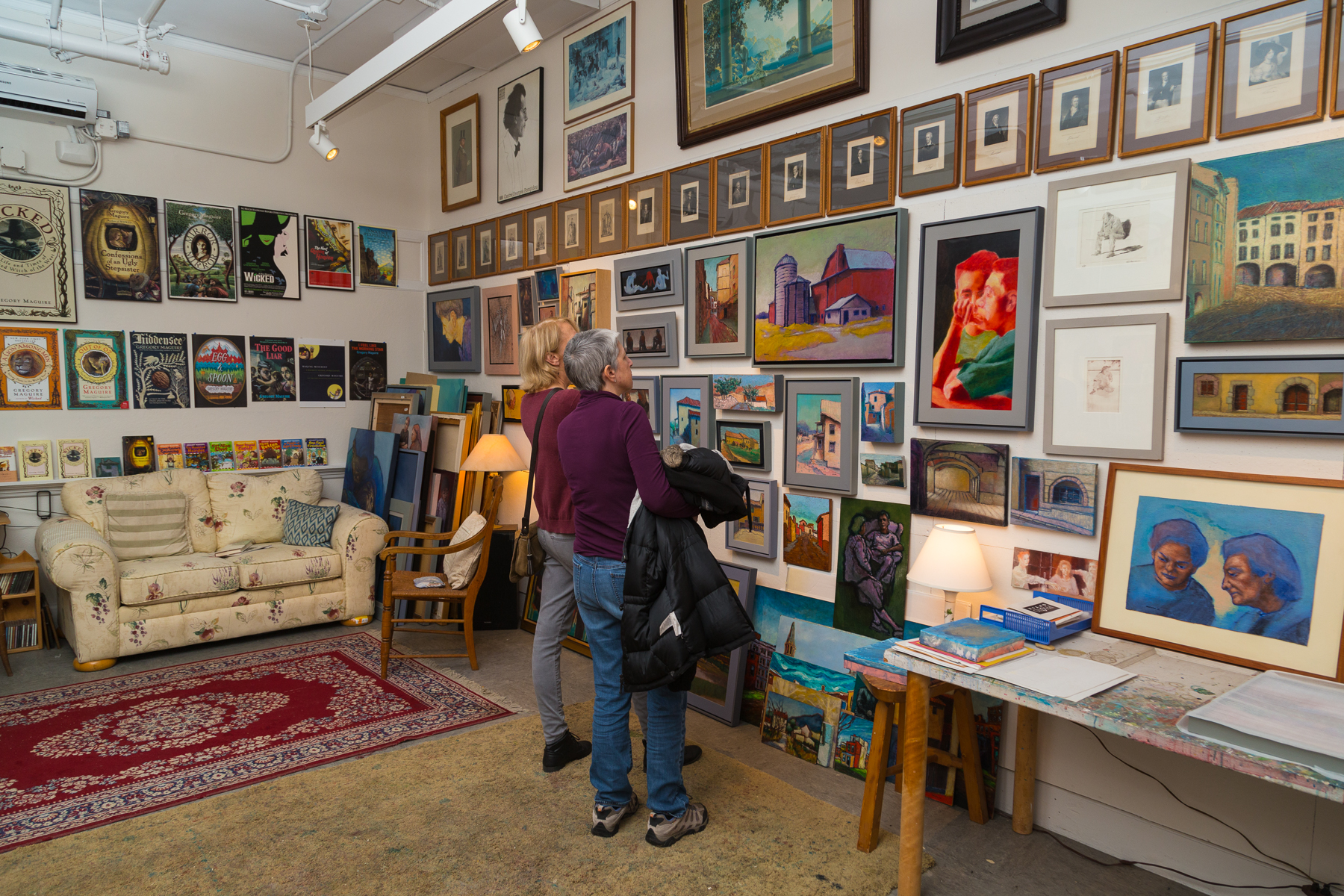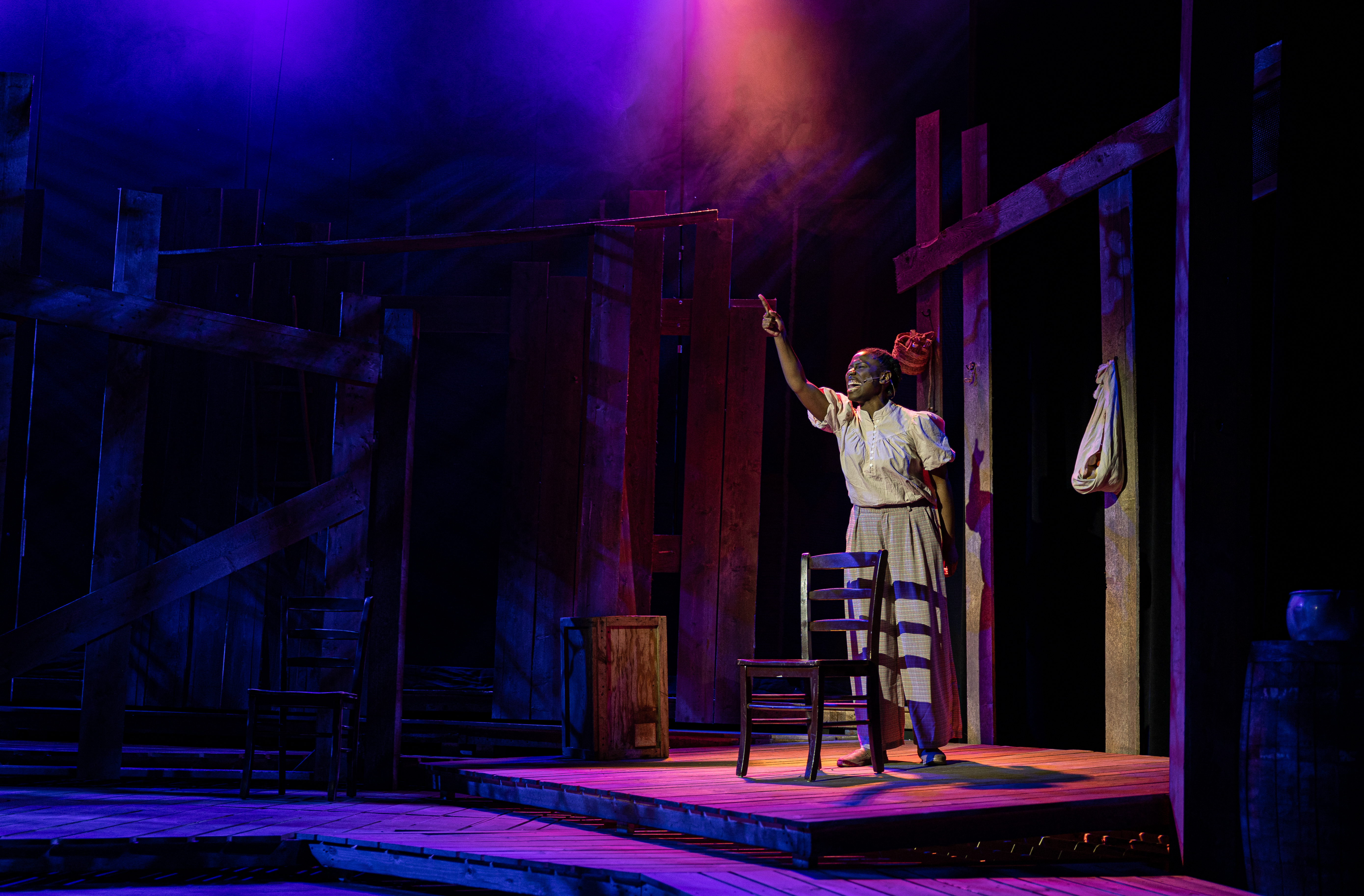Director's Note: Ashley Kelly Tata
Setting: Int or Ext. Two Colleagues catching up.
“I’m directing Network.”
Reaction shot: confusion.
“You know, ‘I’m mad as hell, and I’m not going to take it anymore…?’”
Cut to: Recognition.
More often than not this is a scene that has played out during these months working on this staged adaptation of Paddy Chayefsky’s seminal, 1976 film Network.
“I’m mad as hell…” is a line I cannot remember not knowing. Like “To be or not to be” I don’t remember the first time I heard it or even the first time I quoted it in a self-conscious meta-theatrical way that allowed an outlet for some seed of truth. As with “To be or not to be” I now have a knowledge of what it is like to insist upon finding a way to make a cultural artifact into an extemporaneous utterance by a character who is doing their best to articulate something that has yet to be described. As in both of these cases it is impossible to make Network without dealing with the reality that we are making the work at a time when the words have been performed before. Nearly 50 years after Howard Beale stood rain-soaked in a news studio screaming at the glass lens of a camera, “I’m mad as hell and I’m not going to take this anymore” (Peter Finch, famously, never quite got the line as written), we are living in a post-Network landscape.
My thoughts on Howard Beale had been that he was one of any number of American, usually male, icons who raged against a system, speaking up for the “little man or woman” in the face of bureaucratic and anonymous serialism and dehumanization. His cry has an echo of the siren call that sounded through the mid-20th century in a chorus of anti-war, Black Power, women’s liberation, gay rights movements. An attempt to shatter the teflon-shellacked, cookie-cutter society that stoically ignores the terror of its own creation. Or, as Chayefsky writes in his notes, “television is not up to tell the truth, but only to preserve the illusion of the status quo.” Working on this material in the fall of 2024 I and the company of creators have had to face the fact that we are living in a world full of Howard Beales.
Being “Mad as hell” doesn’t feel like a revolutionary act. It has become the status quo. Not that there aren’t things to be mad about, but working on this piece feels like a reflection on a less quoted Beale line: “First you’ve got to get mad, then we’ll figure out what to do with it.” The madness in this work is not only anger, but the madness that comes from a lust for power and money won by viewership and ratings. Howard Beale lights a fuse, giving permission for every character to follow their pursuit of madness.
It fuels Diana Christiansen, a TV-molded station executive who Chayefsky originally constructed as a man. Gradually through his notes the character morphs into a “hero(ine?)” Of particular interest in our production is how Christiansen sits in a moment of history that we look back to while we seem to be making a u-turn in its direction. Living in 1975-1976, Diana is a woman who has recently been granted the agency over her body and sexuality that comes with the passing of Roe v. Wade. She would have been one of the first in a generation of women to benefit from the Fair Credit Opportunity Act passed just a year before the events of this play takes place and without which Diana’s character would not have been able to sign for a credit card in her own name. Her relationship to money, to power, to a capitalist notion of success is informed by these legal changes. In a note on Diana’s character Chayefsky writes, “[Diana] has the capacity and intelligence to be a poet, a philosopher, an artist - but that requires the faith or illusion that beauty and wisdom are substantially worthwhile.”
This acknowledgement that Diana’s tragic flaw is that she doesn’t have faith is contrasted with a note about Max Schumacher’s character in which Chayefsky notes, “Max’s mistake was that history moves towards human and social justice - NOT SO - History moves towards the concentration of power, so that, in time, one mad man could destroy the world.” (my emphasis added.) Max’s liberal progressive faith is a counterpoint to Diana’s faith-void. Completing this trinity is Howard Beale. A character who we mostly experience through a series of arias, at turns honest, angry, empowering, conspiratorial and/or racist. “The big note we have made so far,” Chayefsky writes, “is the increasing despair of Howard Beale. He has rage, but no answers - so he turns more and more in need of a final and ultimate solution - TRUTH.”
But “…what’s wrong with TV is the audience - who want instant truth - So the clown has become the prophet - and the world will follow these lunatic jugglers to their own destruction.” And so we witness a performance of “truth.” And in the same way that many social media platforms pitch an illusion of conversation that denies actual dialogue, Howard’s truth becomes the stuff of soundbites -- memes. A spew at a glass lens.
Drafting thoughts that will eventually become text in Lee Hall’s adaptation, Chayefsky writes in his notes, “We don’t need truth, we don’t need the absolute, the ultimate, the total and the certain. All we have to do is get along reasonably well with our neighbors.” The necessity of working on a theater piece that is based on a film script that criticizes the medium of television is that we can place the complexity of these characters, the contradictions they carry, into a room where we sit and are affected by the complexity and contradictions of our neighbors. It is in the embodied experience of being in the theater where it seems this work begins to get at a note Chayefsky writes to himself, “I guess I would like to say something against the destructiveness of absolute beliefs. That the only total commitment any of us can have is to other human beings.”
My hope from sitting with your neighbors tonight is that at the conclusion of our production of Network your recognition of this iconic work expands to a complexity of associations beyond, perhaps, being “Mad as hell.” And that we may be inspired to go out from here and “figure out what to do with it.”
-Ashley Kelly Tata
September, 2024
Quotes are from the script or the Paddy Chayefsky papers retrieved from the Billy Rose Theatre Division of the New York Public Library for the Performing Arts
Chayefsky, Paddy.
Plot Outlines. 1974.
Box 93, Folder 1
Plot outlines, narrative development - undated
Box 93, Folder 2
plot outline, notes on narrative development, scene drafts - undated - original order maintained from final bulk grouping by PC
Box 92, Folder 9
LPA Cornell-McClintic Special Collections Room
Billy Rose Theatre Division the New York Public Library for the Performing Arts, New York City, NY.






